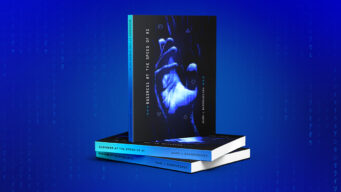New business models have emerged in the Fourth Industrial Revolution (4IR) that distinguish themselves from “the way business was conducted” in the Third Industrial Revolution (3IR). A common theme that has been applied to these new methods is disruption. Let us look beyond disruption and consider the distinguishing characteristics of these new models:
From Analog to Digital: This is perhaps the most obvious. Every analog version of a product or service has a digital version. The quest to eliminate every piece of paper often requires the rethinking of a process. It could be the “Kodak Moment,” the elimination of the wallet and cash, removing a lockbox process, challenging a title process, redefining intellectual property, or going wireless with headphones. Challenge every analog process or product you have, even the very notion of being human.
From Partners to Disintermediation: One of the distinguishing elements in the 4IR is disintermediation, or the removal of the middle person or partner, going direct, direct to the customer, buyer or supplier. We see disintermediation occurring in all industries. Direct in retail. Direct in software. Direct in insurance. The ownership of the customer or consumer is a new battleground for trust, brand, and share of wallet. If the intermediary does not add value, it will be destroyed.
From Transactional to Subscription Economy: In the 3IR, we purchased products or services to own them. In the 4IR, we will subscribe to products or services. This will change relationships and processes from one time to recurring.
Customers and consumers will desire more agility and flexibility. But do the math. There are breakeven models of owning versus renting. I find the answer to many of life’s questions is 42 (as in The Hitchhikers Guide to the Galaxy by Douglas Adams). In the case of owning versus renting, the breakeven point is usually 42 months. After 42 months, you are better to own.
From Me to We: The Sharing Economy: The sharing economy, as it is called, is all about asset utilization. How do I utilize non-working labor or an idle car? Uber. How do I utilize an unoccupied room or house? Airbnb. How do I utilize programmers with available time? Code sourcing. How do I utilize the collective energy of a group of individuals? Crowdsourcing. And so on.
These new business models are rooted at the nexus of the extreme changes in technology (connectivity, computing power, and automation) and a generational or societal change. Millennials are changing the way we do business. They are not shackled to tradition or location, they do not believe in the value of face time, they are impatient learners and seek immediacy, they prefer to learn through experiences, and they believe in life, not a work-life balance.
Technology reflects life. This drives innovations like on-demand, public SaaS, Cloud, a sharing economy, subscription services, and disintermediation. After all, you can run your life today only using one finger on an iPad.
In my next blog in this series, I will explore how industries will be transformed as a result of disruptive new technologies, business models, value chains, and buyer expectations.
To read more, download The Golden Age of Innovation.
I’ll be taking this message on the road for Enterprise World. Learn more.
I’d love to hear your thoughts. To provide feedback, or if you would like to see additional topics covered in future publications, please add your comment below.




